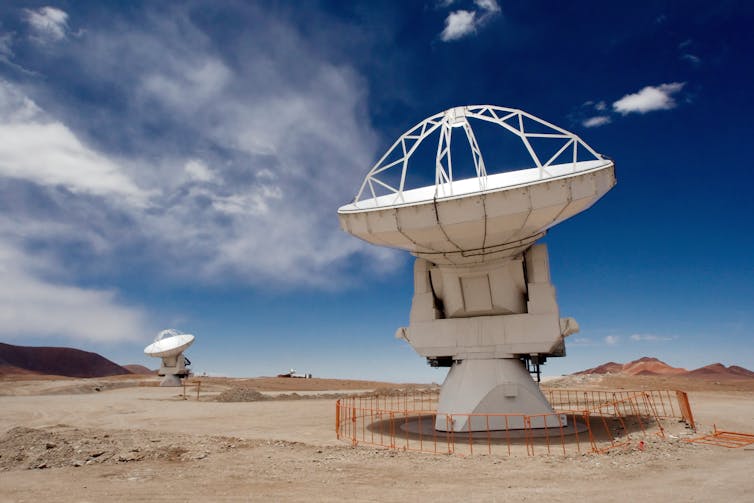USAL's BISITE Group pioneers project with Abu Dhabi's ADIA Lab to develop a digital twin for economic modeling
An initial funding of two million euros will be granted to this University of Salamanca project

Estimated reading time: 6 minutes
The BISITE Research Group of the University of Salamanca is going to develop a groundbreaking project with the ADIA Lab, a research centre based in the United Arab Emirates which is a leader in computational and data science. Juan Manuel Corchado, Director of BISITE and Professor of Computer Science at the University of Salamanca, presented the initiative during a large ADIA Lab symposium held in Abu Dhabi.
"Shaping the Future: Digital Economy, Distributed Ledger Technology, and the Rise of Generative AI" was the title of Corchado's presentation, in which he outlined his project to create a large digital twin to model the digital economy, tokenisation and digital currencies worldwide. To begin with, the initiative will receive funding of two million euros for the next two years, although it is planned that the investment will be extended for similar periods and for larger amounts in the future.
 Juan Manuel Corchado, Director of the BISITE Research Group from the University of Salamanca, during his presentation at the symposium.
Juan Manuel Corchado, Director of the BISITE Research Group from the University of Salamanca, during his presentation at the symposium.
Juan Manuel Corchado described the University of Salamanca project with the participation of professors from the Massachusetts Institute of Technology, such as Thomas Hardjono, Sandy Pentland and Shafi Goldwasser, the latter is also a professor at Berkeley and the Weizmann Institute of Science in Israel; from Khalifa University, such as Jorge Zubelli and Emilio Porcu; from Harvard, such as Miguel Hernán; and from prestigious Spanish centres, including the University of Valencia, which was represented by Manuel F. Doiz, and University of Granada, represented by Francisco Herrera, as well as from the Carlos III Institute of Health, Inma Jarrín Vera; and Javier del Ser, from Tecnalia.
 Inma Jarrín Vera, researcher from the Carlos III Institute of Health, during her speech.
Inma Jarrín Vera, researcher from the Carlos III Institute of Health, during her speech.
Project Contents
"Studying the digital economy, distributed ledger technology and tokenisation requires a broad and complex research effort involving several disciplines, such as applied mathematics, data science, economics, computer science, law and public policy," Corchado said in Abu Dhabi, stressing that the research they will carry out "is crucial in the modern world for several reasons: first, the digital economy is reshaping the way business is done, goods are purchased and services are accessed, which has a significant impact on the global economy; second, distributed ledger technology offers a new paradigm for transparency and security in transactions, which could revolutionise sectors such as banking, healthcare and governance; and finally, tokenisation enables the digitisation of assets, which facilitates their transfer and division, and opens up new opportunities for investment and financing. Understanding these elements is essential to navigate and seize the opportunities in this rapidly evolving landscape.
The project of the BISITE Research Group of the University of Salamanca involves the application of Generative AI techniques to significantly improve the processes associated with the development of the digital economy, distributed ledger technology and tokenisation. "Machine learning algorithms can optimise digital supply chains, predict market trends and detect fraud more efficiently," said the University of Salamanca professor, adding: "Generative AI can be used to create more sophisticated financial models, simulate economic scenarios or generate codes for smart contracts. These applications not only increase efficiency, but can also lead to completely new discoveries and strategies that could be revolutionary for these fields.
Therefore, this project will enable the analysis of the economic impact of digital technologies, identify the main drivers of growth and innovation in the digital economy and explore the role of platforms and networks in shaping the digital economy. In addition, BISITE researchers will study the role of DLT in transforming the digital economy and how AI together with these disciplines can generate new services and products, in a more efficient and decentralised fashion.
Attending Officials
The ADIA Lab symposium was an outstanding global meeting with the participation of Nobel Prize winner Steven Chu, who was part of President Barack Obama's team, as well as Jack Dongarra, from the University of Tennessee, Torsten Hoefler, from ETH Zurich, Luis Seco, from Toronto, Soh Young In, from the Korean institute KAIST, and the Spanish representatives María Loureiro, from the University of Santiago de Compostela, Carme Artigas, as representative of the Spanish Government, and Enrique Herrera, Vice-Rector of the University of Granada, and ADIA Lab representative Horst Simon.

What's Your Reaction?
























